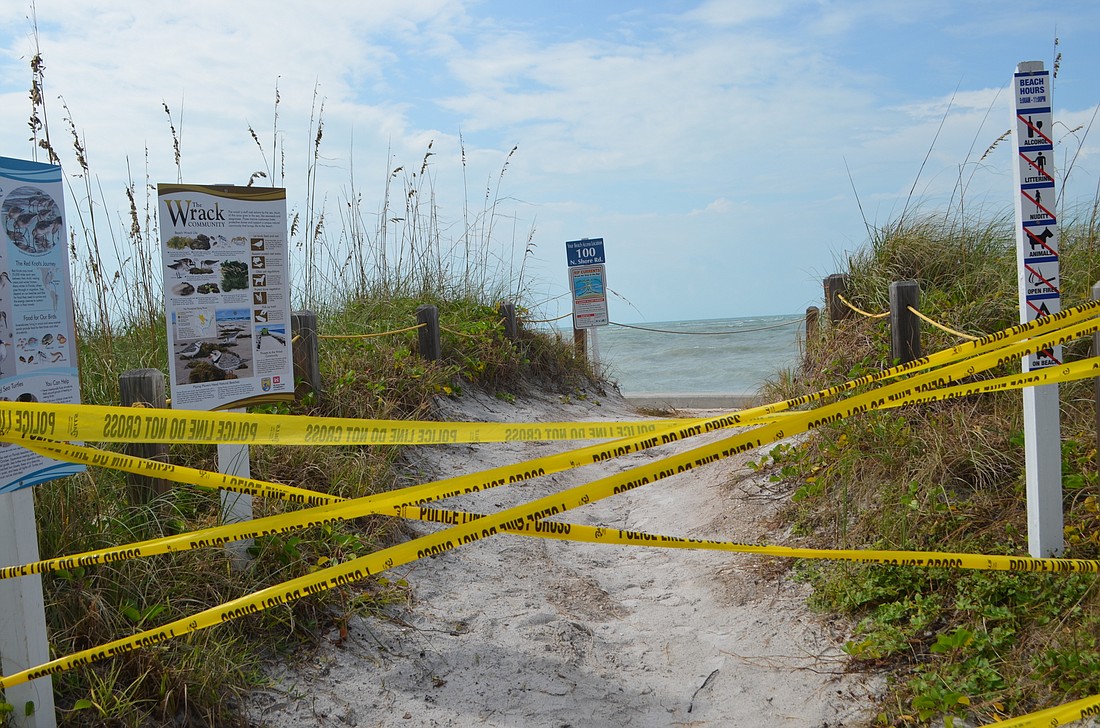- July 4, 2025
-
-
Loading

Loading

Changes in the way town code violations are reported and handled could be on the way.
Following initial approval last week, Town Commissioners are expected to again discuss the package of changes in a public hearing on Oct. 3. A vote to approve then will set the new plan in motion.
The ordinance reflects revisions to the make-up, organization and hearing process. The majority of changes follow the termination of the code enforcement board, which sunsetted at the end of the 2019 fiscal year and was replaced by a Special Magistrate, who hears the town's side of a case, an accused offender's side of the case and then renders a ruling.
The package of changes before the town also clarify provisions regarding the role of the Special Magistrate.
“With changes, new things that we learn, new techniques and new state legislation that comes out, in order to stay on top of it, we need to make sure that all of our code enforcement ordinances are up to date,” Code Enforcement Officer Chris Kopp said.
The frequency of changes is dependent on the code itself. For example, the short-term rental code has not been changed since 1982 and remains one of the town's hallmark regulations. In its most basic form, the rule forbids rentals of less than 30 days in residential zones.
However, the marine turtle protection regulations have been changed about every four years following new research.
One of the most noteworthy changes to the code enforcement involves violation reporting. Due to a state bill that went into effect July 1, 2021, anonymity of those reporting a violation is no longer optional.
In order to file a report, individuals must provide their full name and address.
“There’s two ways to look at it,” Kopp said. “One, is now you’re going to get less people calling because they don’t want their name attached to it. There is a concern there because people want to do the right thing, but they don't necessarily want any potential backlash of them being the whistleblower.”
While Kopp raised concerns about important reports deterred from being made, he did vouch for the change in terms of civil disputes between neighbors arguing with one another.
“There’s also the other side where there are small civil disputes between neighbors and they try to call code enforcement to tell on each other sometimes,” he said. “They can turn out to be frivolous complaints, which then clog up our government system and our manpower.”
Multiple commissioners said they weren't comfortable with the state's ban on anonymity, but Planning, Zoning and Building Department Director Allen Parsons said officers may still be able to practice discretion when investigating violations regardless of reporter identity.
Commissioner BJ Bishop also presented concern with compliance time, presenting the example of loud music being turned back up shortly after officers have left.
As of Sept. 16, Kopp had about 180 open cases. Each day he is able to close some along with new ones coming in. Along with Kopp, the Key’s police officers are also able to enforce code violations.
“We are always aiming for compliance,” Parsons told the commission. “We are not aiming to have a revenue generating source. Our first line of presenting someone who may be violating our code is not to issue a citation.”
Additional codes could also be added to the list of those that qualify for an immediate citation rather than needing to go through the hearings process. Examples of the new list include dogs or cats prohibited on beaches, property maintenance standards, sound regulations, spotlights or floodlights and the town's code that regulates size and placement of temporary signs.
According to a staff memorandum, such point-in-time violations are those that are inherently transitory such as short-term rental violations that are corrected once the occupancy ends. Staff expressed that such violations are ill-suited for the town’s typical code enforcement process that provides a violator multiple opportunities to correct a violation prior to receiving an order from the Special Magistrate.
Among those already on the list for point-in-time violations: unpermitted construction activities, turtle-protection regulations, commercial vendors and other prohibited activities in town parks, public beaches and public beach accesses.
Once passed, staff will launch outreach efforts to make the public aware of additional code provisions enforceable by civil citations.
Typically, fees are dependent on the number of violations. The first violation is a fine of $100. The second violation is $250. The third and each subsequent violation is a $500 fine.
Fines can vary and are left up to the discretion of the magistrate. For example, a violation of the town’s short-term rental program would typically garner a fee of $100 a day of violation.
Special magistrate powers were outlined in the code changes, which include the authority to establish procedures for presentation of cases, control cases and enforce authorized town code provisions.
Among the changes proposed for the Special Magistrate were language indicating it is the town’s burden to demonstrate a violation occurred, allowing multiple violations to be heard and for the magistrate to allow for extensions for returning to compliance.